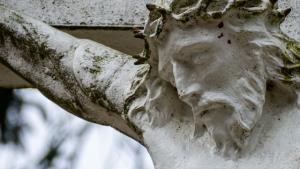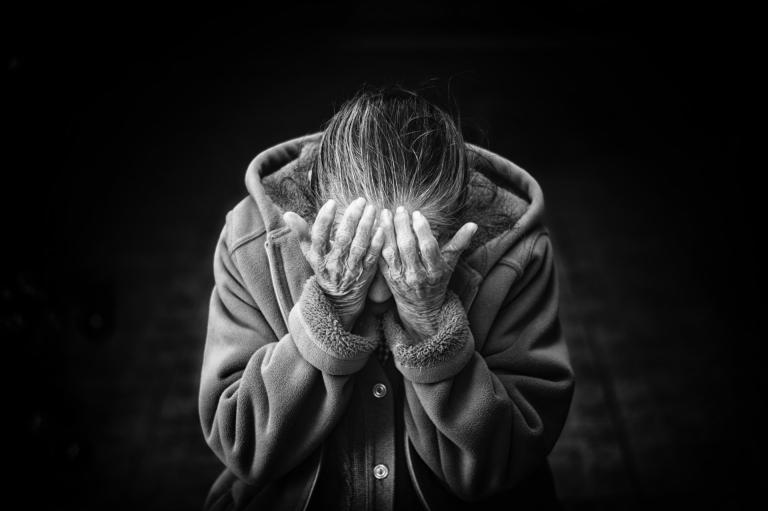Recounting an execution at Auschwitz Concentration Camp where he was a prisoner, Ellie Wiesel writes:
Then came the march past the victims. The two men were no longer alive. Their tongues were hanging out, swollen and bluish. But the third rope was still moving: the child, too light, was still breathing…
And so he remained for more than half an hour, lingering between life and death, writhing before our eyes.
And we were forced to look at him at close range. He was still alive when I passed him. His tongue was still red, his eyes not yet extinguished.Behind me, I heard the same man asking:
“For God’s sake, where is God?”
And from within me, I heard a voice answer:
“Where He is? This is where–hanging here from this gallows…”
It is common for those who have childish understandings of the Christian faith to suggest that the church’s insistence on the crucifixion’s importance is morbid and manipulative.
But in life’s hard places, where else would God be? At a party while others lingered in hospice? At a dining room table laden with food, while children starve? At a safe distance from those subjected to violence and torment?
In a moment of unspeakable horror, Ellie Wiesel instinctively understood is what we all know to be true, but resist admitting, even to ourselves. The only way for God to lead us out of suffering is to walk with us through that suffering. Every other version of what it means to be a savior assumes a different kind of world, none of which exist.
Jesus stepped into the world that does exist, where there were competing conceptions of what God might do. How freedom and healing could be achieved. Some thought in terms of political deliverance. The exercise of power. Others retreated to the desert to await a final judgment. Still others sought a variety of paths in between.
We are no different. Our conceptions of freedom and healing are sharply circumscribed by our longings and imagination. Our conceptions of what God can and should do are often childish and magical. We want freedom without consequences, deliverance without complexity.
After all, who can imagine telling God, “You must suffer for our sake”? Our conceptions of a God willing to do that are too small to anticipate a deliverer of that kind, and we would never do it ourselves. Not for unknown billions, for weak and the strong, the young and the old, for those who are whole and those who are injured, for friend and enemy alike.
But from the place that transcends our petty considerations and still hears our cries, God – in Christ – is lifted up in the only place that God can be. On a cross, alongside us.
The Story is from Ellie Wiesel’s Night
The bronze is by Gib Singleton














